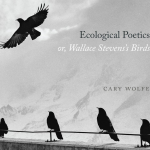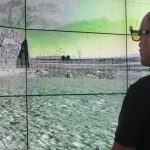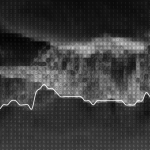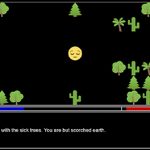critical ecologies
Lines of Sight: Thirteen Ways of Looking at a System (Organism, Poem, or Otherwise)

What Mario Aquilina and Ivan Callus accomplished in their "13 Ways of Looking at Electronic Literature", Lisa Swanstrom does for Ecocriticism. Taking as her starting point, Cary Wolfe's book on Wallace Stevens, Swanstrom explores each and every one of Stevens's "13 Ways of Looking at a Blackbird." What emerges, alongside Wolfe's ecocriticism is a resurgence, in literary studies, of the art of close reading.
Restoring the ‘Lived space of the body’: Attunement in Critical Making

In this article, Kelsey Cameron and Jessica FitzPatrick propose attunement, a conceptual intervention that returns lived experience to critical making. They argue for attunement in three areas: disciplinary recognition of making, labs and other university maker spaces, and campus-community engagement. Attunement helps bring equity into critical making, highlighting how larger systems shape individual acts of making.
Addressing Significant Societal Challenges Through Critical Digital Media

Roderick Coover and Scott Rettberg reflect on the cultural values, political debates, power structures and architectures of exploitation underlying much of contemporary digital culture. As digital artists and collaborators, they also identify aesthetic reactions that actually combat what they critique. But for this to happen, we need literary works that are themselves produced, and actively circulating within digital environments.
A portion of the essay, focused on the ToxI*City project, is adapted from an earlier discussion published in ebr: Voices from Troubled Shores: Toxi•City: a Climate Change Narrative
Electronic Literature in the Anthropocene

Following the work of Jennifer Gabrys (in Program Earth), Carter contends that electronic literature has the potential to function as a mode of experimental sense-making. By exploring works by Tina Escaja, Mark Sample, and J. R. Carpenter, Carter reveals the limits and potentials of our data-driven epistemes - to expose that which goes unseen, and highlight its significance for how we come to know and respond to the challenges ahead.
Greening the Digital Muse: An Ecocritical Examination of Contemporary Digital Art and Literature

By now, Cultural Ecology, Ecocriticism, and Environmental Humanities can tell us all we need to know about climate change. What's still needed, however, is for authors and artists to reconceptualize environmental issues as social and human questions rather than mere technical ones.